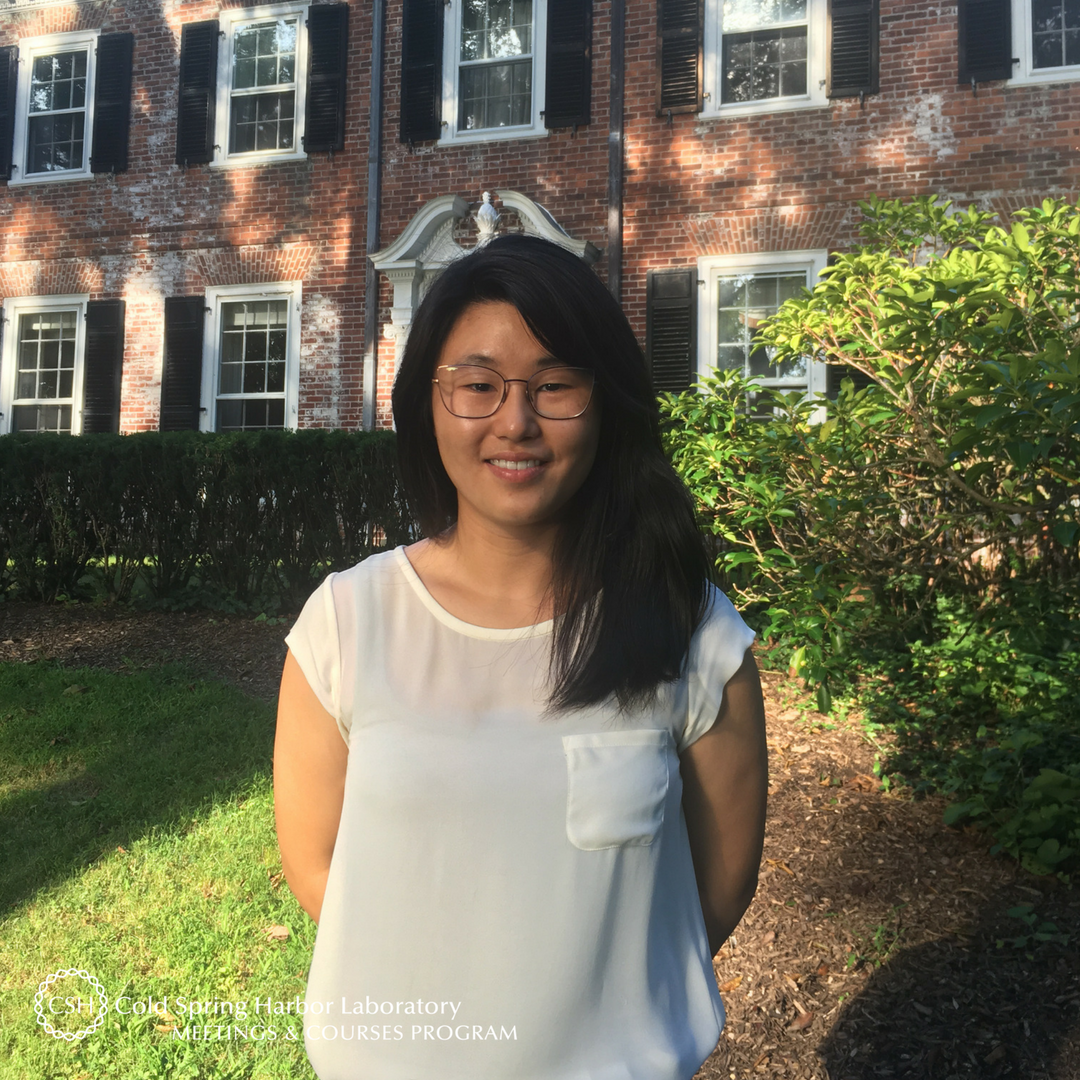Meet Dawoon “Sheri” Choi of the University of British Columbia (Canada). The graduate student is a member of Janet Werker’s Infant Studies Centre. She is on campus wrapping up her training at the Genetics & Neurobiology of Language workshop.
What are your research interests? What are you working on?
Broadly speaking, I am interested in how human infants acquire speech. The focus of my research is on early speech perception; specifically, on the perceptual biases and neuro-cognitive mechanisms that may allow infants to be successful language learners.
How did you decide to make this the focus of your research?
Language and speech are uniquely human processes. Despite the complexities inherent in languages, infants are able to learn their native speech without explicit tutelage or guidance. I wanted to focus on infants because of this unique capacity. We know that there are cascading processes that occur early on that sets the stage for language usage for the rest of the lifespan, and by better understanding the perceptual biases that contribute to the scaffolding of language learning, I hope to understand the important element of human speech.
How did your scientific journey begin?
After finishing my undergraduate degree in Psychology at McMaster University. I moved to Trento, Italy to pursue a Masters in Cognitive Neuroscience at CiMeC, where I became better equipped at understanding neuroimaging techniques. Due to the great facilities and world-class research, I was inspired by the research on the brain dynamics underlying perception. I wanted to apply the skillsets acquired during my training to understand speech perception during development.
Was there something specific about the Genetics & Neurobiology of Language course that drew you to apply?
I wanted to apply to the course because it brought together researchers from diverse fields with different research programs who converge on the goal of understanding the human faculty for language. Since the study of language requires you to think and understand it from multiple perspectives, I felt that the interdisciplinary aspect of the workshop would allow me the unique opportunity to learn -- in depth -- the specific research questions addressed by world-renowned researchers.
What and/or how will you apply what you've learned from the course to your work?
The course helped to broaden my perspective on both the theoretical issues and research programs currently making new grounds in speech and language sciences across the spectrum. I also learned to read and think more critically about the studies from different fields that I haven’t had training in, such as genetics or patient studies, as the researchers placed emphasis on conveying the basic methodological principles used in their fields. I’m thinking about how these processes may be informed from a developmental perspective, and conversely, what questions can be asked in the developmental population to contribute to the debates.
What is your key takeaway from the course?
My main takeaway from the course is that language is complex, and an approach whereby we examine the core problem from multiple perspectives is necessary to tackle the broader goal of understanding the human faculty for language.
If someone curious in attending this course asked you for feedback or advice on it, what would you tell him/her?
I very highly recommend attending this workshop for any researchers interested in language and speech. The scope of topics in the course is wide but one starts to see the links and how they may inform one another. It’s a great example of why an interdisplinary approach to language research is so important.
What do you like most about your time at CSHL?
The campus and the Banbury Conference Center provides a relaxing and idyllic atmosphere that helps to facilitate the formation of dialogue very naturally. Working with and getting to know all of the participants of the course was an invaluable experience.
Sheri received financial support from the Nancy Lurie Marks Family Foundation to cover a portion of her course tuition. On behalf of Sheri, thank you to the Nancy Lurie Marks Family Foundation for supporting and enabling our young scientists to attend a CSHL course where they expand their skills, knowledge, and network.
Thank you to Sheri for being this week's featured visitor. To meet other featured scientists - and discover the wide range of science that takes part in a CSHL meeting or course - go here.
Photo: Sheri Choi


